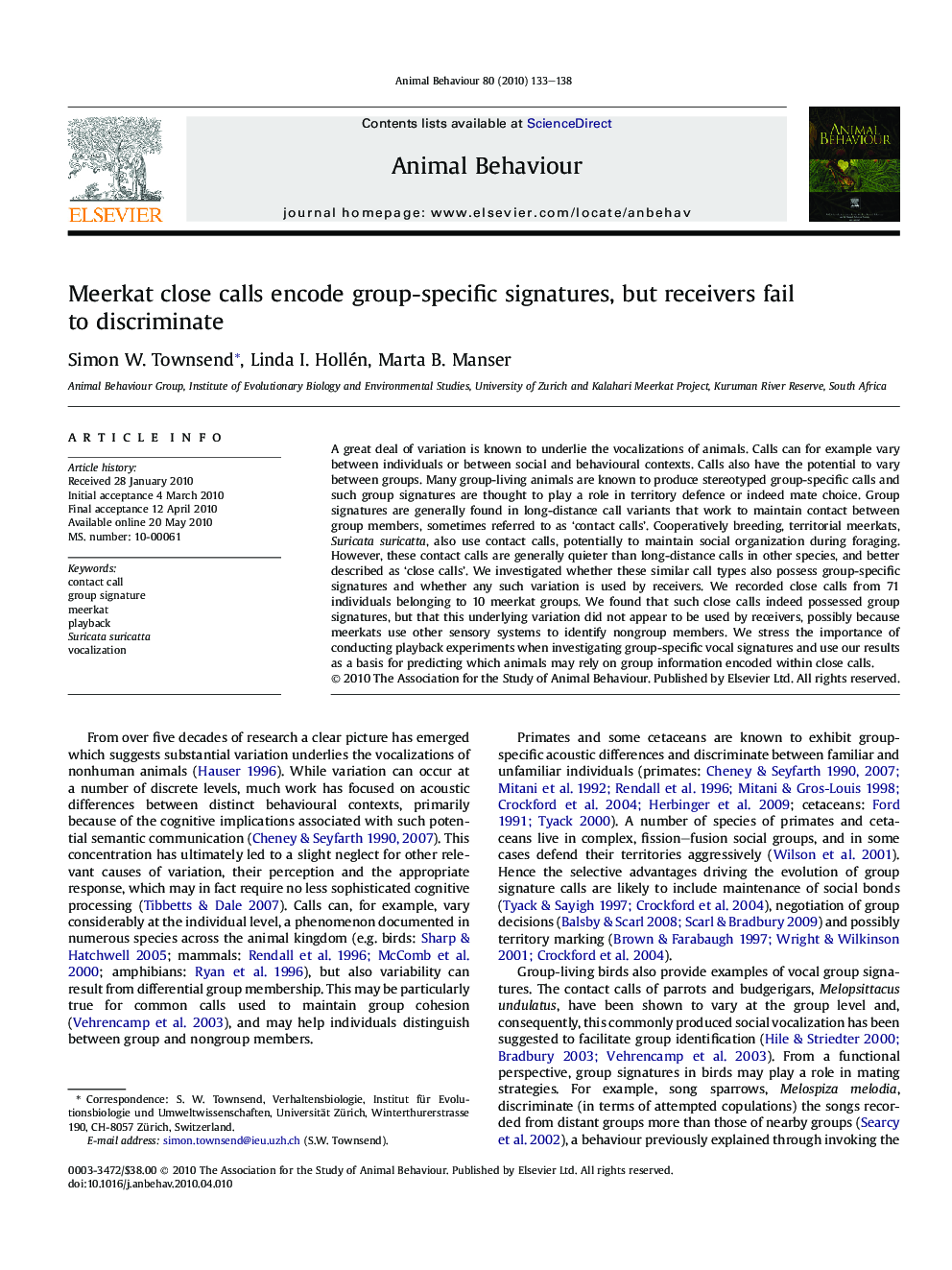| Article ID | Journal | Published Year | Pages | File Type |
|---|---|---|---|---|
| 2417279 | Animal Behaviour | 2010 | 6 Pages |
A great deal of variation is known to underlie the vocalizations of animals. Calls can for example vary between individuals or between social and behavioural contexts. Calls also have the potential to vary between groups. Many group-living animals are known to produce stereotyped group-specific calls and such group signatures are thought to play a role in territory defence or indeed mate choice. Group signatures are generally found in long-distance call variants that work to maintain contact between group members, sometimes referred to as ‘contact calls’. Cooperatively breeding, territorial meerkats, Suricata suricatta, also use contact calls, potentially to maintain social organization during foraging. However, these contact calls are generally quieter than long-distance calls in other species, and better described as ‘close calls’. We investigated whether these similar call types also possess group-specific signatures and whether any such variation is used by receivers. We recorded close calls from 71 individuals belonging to 10 meerkat groups. We found that such close calls indeed possessed group signatures, but that this underlying variation did not appear to be used by receivers, possibly because meerkats use other sensory systems to identify nongroup members. We stress the importance of conducting playback experiments when investigating group-specific vocal signatures and use our results as a basis for predicting which animals may rely on group information encoded within close calls.
